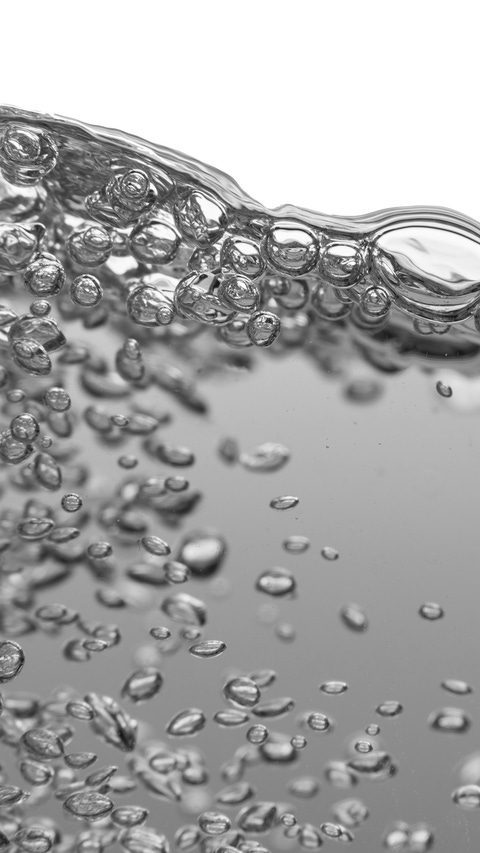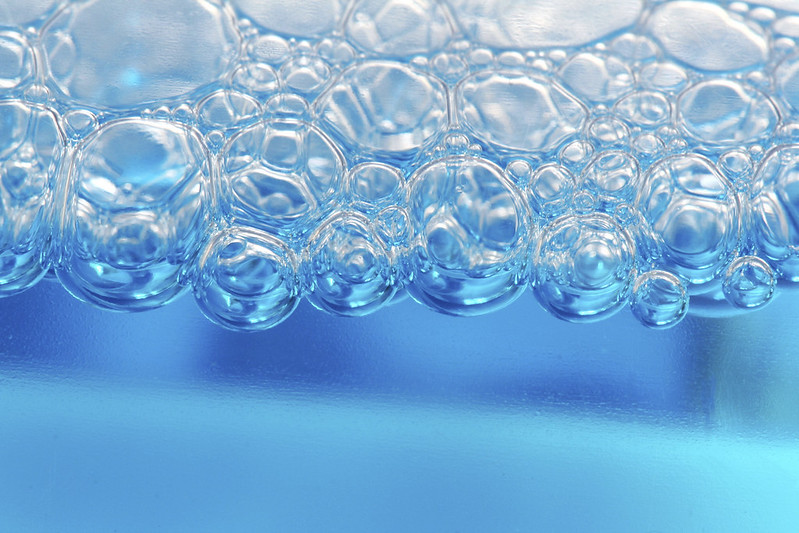How Defoamers Enhance Efficiency in Manufacturing and Production
How Defoamers Enhance Efficiency in Manufacturing and Production
Blog Article
The Duty of Defoamers in Enhancing Product Top Quality and Performance
Defoamers offer as important additives that minimize this issue, making sure smoother manufacturing process while boosting the practical and visual characteristics of the last products. The selection of the proper defoamer can be important to accomplishing optimum outcomes, increasing essential questions concerning solution compatibility and performance metrics that warrant further exploration.
Understanding Defoamers
Understanding the role of defoamers is vital for preserving product quality across various industries. Defoamers are chemical ingredients made to reduce and prevent the development of foam in liquid systems, which can negatively affect processes such as blending, loading, and surface area tension. Foaming can lead to inadequacies, item problems, and compromised aesthetic allure, making defoamers a critical part in producing operations.
In industrial applications, defoamers assist to boost product consistency and security. In the paint and finishings industry, foam can conflict with the application procedure and the last surface. In food and drink manufacturing, extreme foam can impede bottling and product packaging effectiveness. The effective use defoamers not only ensures smoother manufacturing processes yet likewise contributes to remarkable product efficiency.
Additionally, the selection and formula of a defoamer must line up with specific application demands, such as compatibility with various other components, performance under varying temperature level and pH problems, and prospective governing constraints. Eventually, recognizing defoamers' functions and their value in various formulas is crucial for enhancing manufacturing and guaranteeing the best final result.
Sorts Of Defoamers
Defoamers can be classified right into several types based on their structure and device of action. The primary types consist of silicone-based, non-silicone natural, and not natural defoamers.
Silicone-based defoamers are amongst one of the most effective, mostly as a result of their ability to spread rapidly on the liquid surface area and interfere with foam development. Their unique chemical structure permits exceptional stability, making them appropriate for high-temperature applications and atmospheres with differing pH degrees.
Non-silicone natural defoamers, usually made up of fatty acids or all-natural oils, are valued for their biodegradability and reduced poisoning. These are generally utilized in food and beverage applications where security and environmental effect are critical.
Inorganic defoamers, that include compounds like talc or calcium carbonate, act by boosting the density of the liquid, consequently lowering foam security. They are commonly made use of in commercial procedures where compatibility with various other materials is not an issue.
Each sort of defoamer has unique benefits and restrictions, enabling tailored services depending on the specific lathering issues encountered in numerous applications. Recognizing these distinctions is important for optimizing efficiency and achieving wanted item quality.
Applications Throughout Industries
Many markets leverage defoamers to boost product quality and functional efficiency. In the food and beverage industry, defoamers are crucial in processes such as developing and milk production to avoid foam development, which can lead to ineffectiveness and item disparity. By regulating foam, suppliers can make sure far better return and a more consistent product.
In the pharmaceutical market, defoamers play a vital function in the formulation of liquid drugs, where too much foam can restrain mixing and accurate application. Their use aids preserve the stability of the formulas and helps with see it here smoother manufacturing processes.
The paint and finishes industry also depends on defoamers to improve the performance of items during application. By decreasing foam, these ingredients guarantee a smoother surface and improve the visual qualities of the final item.

Advantages of Making Use Of Defoamers
While the application of defoamers differs across markets, their benefits regularly boost item top quality and process efficiency. One significant benefit is the reduction of foam formation during producing processes, which can or else lead to manufacturing hold-ups and disparities in item quality. By decreasing foam, defoamers allow a smoother flow of materials, facilitating a lot more reliable operations and minimizing the possibility of tools breakdowns.
In addition, the usage of defoamers can improve the look and structure of end products. In industries such as layers, paints, and food handling, extreme foam can compromise the aesthetic aesthetic appeals and total top quality, while the ideal defoamer application makes certain an uniform coating and preferable features. Additionally, defoamers can add to set you back savings by reducing waste during production and optimizing using raw products (defoamers).

Choosing the Right Defoamer
Choosing the best defoamer is important for maximizing manufacturing processes and making certain item quality. The selection of defoamer affects not just the efficiency of foam control however likewise the overall performance features of the end product. Factors to take into consideration include the kind of application, the chemistry of the solution, and the ecological conditions under which the item will certainly be made use of.
Various sectors might require specific defoamer types, such as silicone-based, organic, or polymeric defoamers. Understanding the compatibility of the defoamer with the key ingredients is necessary to prevent damaging responses that can jeopardize item honesty. In addition, the defoamer's efficiency in different temperatures and pH levels should be reviewed to ensure constant performance.
Testing the defoamer in small applications can provide useful understandings into its performance and viability. Consideration of governing compliance, especially in food, pharmaceuticals, and cosmetics, is extremely important in choosing a defoamer. Eventually, a comprehensive assessment of these variables will cause the selection of a defoamer that not just regulates foam effectively but likewise improves the top quality and efficiency of the end product.
Verdict

In conclusion, defoamers are necessary additives that dramatically enhance product quality and efficiency across numerous sectors. By efficiently lowering foam development, these representatives not just improve operational efficiency however additionally add to the useful and visual integrity of products. The critical selection and application of defoamers bring about cost savings, maximized resource usage, and raised consumer complete satisfaction. On the whole, the importance of defoamers in commercial processes can not be overstated, as they play an important role in attaining consistent and high-quality outcomes.
Frothing can lead to inefficiencies, product defects, and jeopardized visual appeal, making defoamers an essential component in producing operations.

Report this page